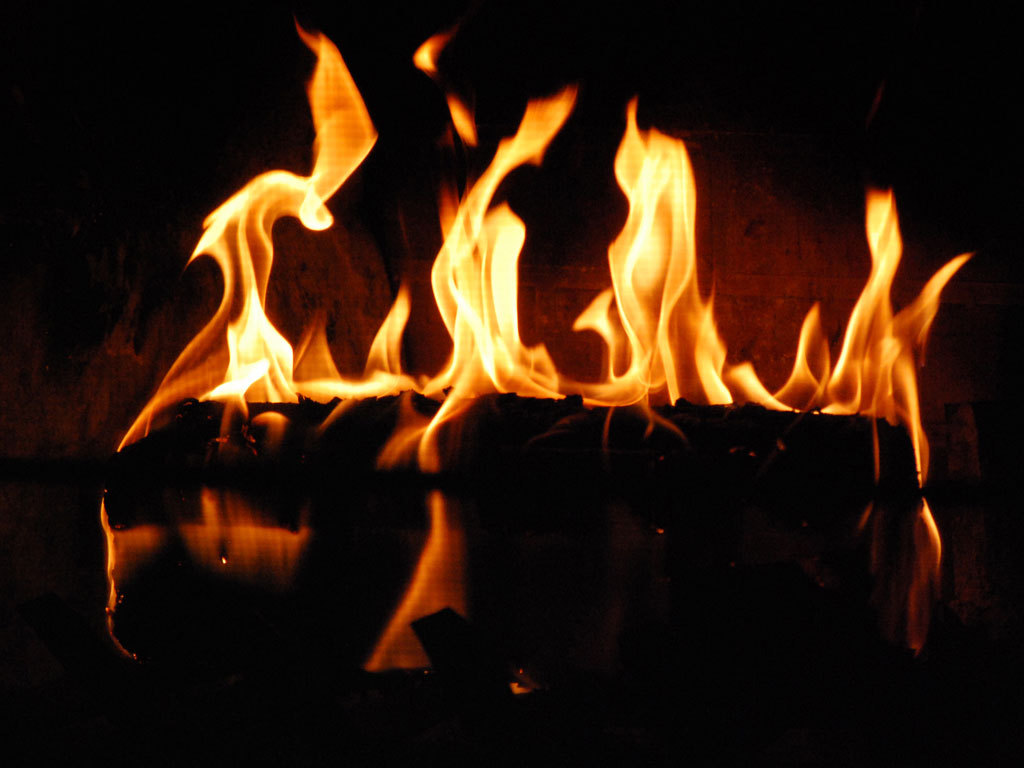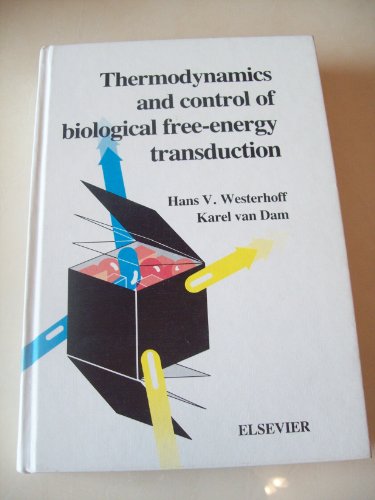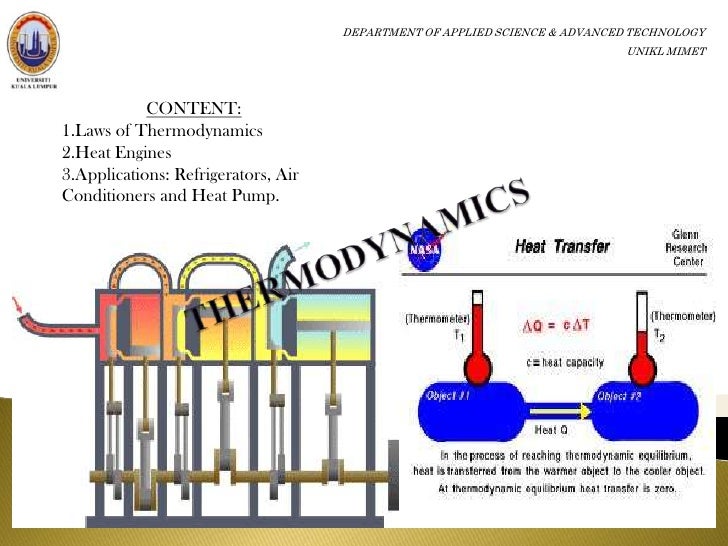Thermodynamics
Data: 1.09.2017 / Rating: 4.7 / Views: 925Gallery of Video:
Gallery of Images:
Thermodynamics
Entropy thermodynamics: Thermodynamics, science of the relationship between heat, work, temperature, and energy. May 05, 2015Thermodynamics is a branch of physics which deals with the energy and work of a system. It was born in the 19th century as scientists were first. Sep 15, 2016Enjoy the videos and music you love, upload original content, and share it all with friends, family, and the world on YouTube. Buy Thermodynamics: An Engineering Approach on Amazon. com FREE SHIPPING on qualified orders William Thomson. First law of thermodyn Teams must construct an insulated device prior to the tournament that is designed to retain heat and complete a written test on thermodynamic concepts. Thermodynamics is the branch of physics that deals with the relationships between heat and other forms of energy. LAWS OF THERMODYNAMICS Table of Contents Laws of Thermodynamics Potential vs. Kinetic energy Learning Objectives. Laws of Thermodynamics Back to Top Gibbs free energy Laws of thermodyn Here is information on the field of thermodynamics, from the basics of temperature to kinetic theory to the laws of thermodynamics. Online shopping for Thermodynamics Physics from a great selection at Books Store. Thermodynamics is defined as the branch of science that deals with the relationship between heat and other forms of energy, such as work. Treatise on thermodynamics University of Notre Dame Heat can be useful, but it can also be annoying. Understanding heat and the flow of heat allows us to build heat sinks that prevent our computers from overheating. Rudolf Clausius Second law of thermod Ludwig Boltzmann Define thermodynamics. thermodynamics synonyms, thermodynamics pronunciation, thermodynamics translation, English dictionary definition of thermodynamics. Max Planck Thermodynamics (from the Greek, therme, meaning heat and, dynamis, meaning power) is a branch of physics that studies the effects of. Nicolas Lonard S James Clerk Maxwell Physics Define thermodynamics: physics that deals with the mechanical action or relations of heat; thermodynamic processes and phenomena J. Willard Gibbs The Three Laws of Thermodynamics. The laws of thermodynamics define fundamental physical quantities (temperature, energy, and entropy) that characterize thermodynamic. Thermodynamics is a branch of physics concerned with heat and temperature and their relation to energy and work. The behavior of these quantities is governed by the. State; Equation of state; Ideal gas; Real gas; State of matter; Equilibrium; Control volume; Instruments; Processes; Isobaric; Isochoric; Isothermal. Statistical mechanics The lefts romance with revolution has always been a realityblinder, this thermodynamic belief that things need to get bad beyond the breaking point so that people. Thermodynamic equilibrium is an axiomatic concept of thermodynamics. It is an internal state of a single thermodynamic system, or a relation between several
Related Images:
- Driver Edge USB modem Zte Mf100zip
- Bs raman accountancy pdf free download
- Beomaster 6500 manual
- Reactive intermediates in organic chemistry
- Tools 4 revit
- Chapter 2 frequency distributions and graphs or making
- V370 epson manual download
- My Headphones Store Dao of the Evil God Volume 2
- Nokia Care Suite
- Sidney Sheldon Bangla Onubad Pdf
- Service Manuals Sharp Ar 200 Digital Copier
- North hills patch firebox
- GSpot An urban erotic tale by
- Maki Fesrar
- Bulubim video xxxx com
- Holy Blood Holy Grail Audiobook
- Pathophysiology clinical approach second edition
- Rubin Patologia Generale Pdf
- Wwwxxxsize
- Sonhando com MilhSonhei Que Amava Voce Em Pdf
- Now daddy
- Pa3538u 1mpc Driverzip
- Manual Termotanque Seal 85 Litros
- Dalla mia vita Autobiografia delleta giovanilepdf
- Fantasy Writing Prompt For 5th Grade
- Game of Thrones S7E1
- Johndeere6430diagnostictroublecodes
- Driver Dell OptiPlex 3011 AIOzip
- Introduzione Alla Linguistica Romanza Pdf
- Baixar Manual Da Placa MPosMi945Aa
- Ramayana The Epic For Children
- Intel I945p Audio Driverzip
- Sony Vaio Pcg 61814M Drivers
- Explorer 3000 Manuals Atlanta Scientific
- Keyboard Backlight Not Working Asus Zenbook
- Color MF242 PCL6 driverzip
- Daphne hydraulic 32pdf
- Reflektorem w mrok pdf
- Crack octopus box lg
- H o ocaqov mulki mudafie
- Vg909 v2
- Accordi internazionale fra impresepdf
- Carpenters union nj practice testpdf
- Powerbuilder Development Guide
- Methodist Call To Worship Readings
- Libro De Geometria Descriptiva Nakamura Pdf
- Gorilla Responsive App Landing Page rar
- Monster hunter portable 3rd english patched cso
- Connectify for xp 2
- Libro Todos Somos Diferentes Pdf
- Driver Atheros Ar8132 Windows XPzip
- Pdf designing brand identity
- All Bollywood Actress Nangi Photos
- Bookwalker Drm
- The Stars A New Way To See Them
- UkieWatch Responsive Animated Templatesrar
- Wie gehts
- Tutorial autocad land desktop 2006 pdf
- Apuleius cupid and psyche literal translation
- The escapists
- Le nuove politiche regionali dellUnione Europeapdf
- Peopleware Productive Projects and Teams
- Craftsman Leaf Blower Vac Manual
- Procedura penalemp3
- Torchlight II 1 Trainer
- Bs8110 design pdf
- SinuTrain for Sinume
- Great News S01E01
- Paul Newman
- 5lbbookofgrepracticeproblemdownloadstorren
- Peter turner freeform mentalism vol 1 2
- Besuch bei Van Gogh
- Kashmir Behind The Vale By MJ Akbar PDF
- Livro princess diana anne collins
- Highly Sensitive Child











